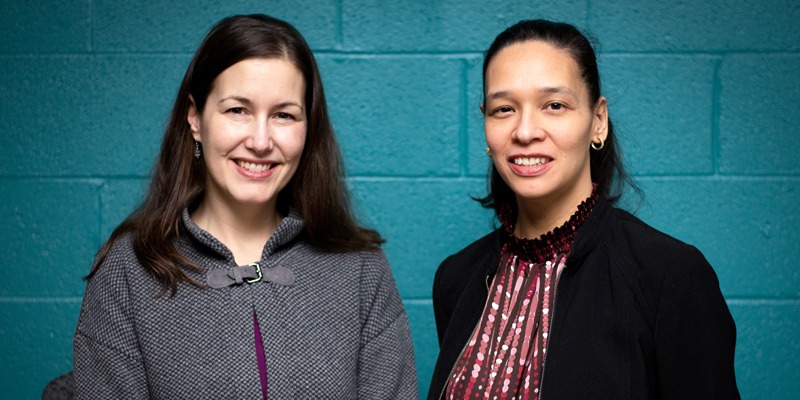Cambridge fellows

Two members of the Memorial community have recently been named fellows of social innovation by the University of Cambridge.
Dr. Natalie Slawinski, associate professor of strategy at the Faculty of Business Administration, has been named a research fellow, and Nicole Helwig, manager, Centre for Social Enterprise, has been named a practitioner fellow at the Cambridge Centre for Social Innovation.
Growing a global community
Social innovation fellows advise, promote and assist the work of the Cambridge centre in its efforts to foster social innovation and engage with social innovators and social ventures across the world.
“The opportunity to exchange ideas and engage in conversations with those on the leading edge of social innovation is an honour,” said Ms. Helwig. “The diversity of opinions and experiences represented by the work of the Cambridge Centre for Social Innovation is inspiring.”
The fellowship came about after Dr. Neil Stott and Dr. Paul Tracey, co-directors of the Cambridge centre, visited Memorial’s Centre for Social Enterprise last spring.
“My sense was they recognized there is exciting activity at Memorial — and in the province — in this field of work and study,” said Ms. Helwig. “In learning from each other and growing together, there is value we can add to help grow the global community of social enterprise and social innovation.”
Cambridge collaboration
Dr. Slawinski, who is an academic advisor for the Centre for Social Enterprise and conducts research on social enterprise, says Memorial and Cambridge have already begun collaborating.
She and Ms. Helwig have both visited Cambridge as guest lecturers and Dr. Slawinski is conducting research with Dr. Stott, for example.
“It helps put the work we do in this sector on the map.” — Nicole Helwig
“Being a social innovation research fellow at Cambridge has connected me to outstanding social innovation scholars with whom I can exchange ideas and collaborate,” said Dr. Slawinski. “The experience at Cambridge has also allowed me to share my research with, and to learn from, bright and passionate students from around the world who are involved in social innovation.”
Ms. Helwig agrees. She says she was “very impressed” with what she saw at Cambridge.
“The students represent diverse countries, sectors and experience,” she said.
“It was a pleasure engaging with them inside and outside of the classroom, and I was a proud Newfoundlander in sharing some ideas about what makes Newfoundland and Labrador an interesting place for social enterprise. It helps put the work we do in this sector on the map.”
‘Mutual reinforcement, mutual learning’
The appointment brings international recognition to Memorial’s reputation in the emerging fields of social enterprise and entrepreneurship, which use sustainable business practices to identify, evaluate and explore opportunities to create social and/or environmental value and to help build sustainable communities.
For Cambridge, it’s an opportunity to share diverse experiences and knowledge within the field, says Dr. Stott.
“Memorial University seems to be capturing the zeitgeist around social enterprise, which is very exciting,” he said.
“Seeing the work that some of your students have been doing [and] the work that the Centre for Social Enterprise is doing, we thought, ‘Here’s a sister centre. We want to work with you.’”
“Memorial University seems to be capturing the zeitgeist around social enterprise, which is very exciting.” – Dr. Neil Stott
Dr. Stott says Cambridge has its own unique benefits, and that it provides access to a wide range of perspectives in a European context, which is different than a Canadian context, and access to world-class academics.
“We do things slightly different in our centre because we don’t just focus on social enterprise, so there’s learning around the things that we’re doing, which would be useful to Newfoundland. I think it’s about helping each other — mutual reinforcement and mutual learning — and building a community around social innovation.”
For Dr. Slawinski, the fellowship also provides the opportunity to gain new perspectives on social innovation.
“Sometimes you just need to get out of your day-to-day routine and connect to the bigger world to gain a broader perspective, and then you come back and can use that new knowledge for local benefit.”